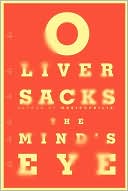Evolutionary Psychiatry: A New Beginning
Challenging a medical model which has supplied few effective answers to long-standing conundrums, Evolutionary Psychiatry proposes a new conceptual framework for psychiatry based on Darwinian theory.\ Anthony Stevens and John Price argue that psychiatric symptoms are manifestations of ancient adaptive strategies which are no longer necessarily appropriate but which can best be understood and treated in an evolutionary and developmental context. They propose theories to account for the...
Search in google:
Challenging a medical model which has supplied few effective answers to long-standing conundrums, Evolutionary Psychiatry proposes a new conceptual framework for psychiatry based on Darwinian theory.Anthony Stevens and John Price argue that psychiatric symptoms are manifestations of ancient adaptive strategies which are no longer necessarily appropriate but which can best be understood and treated in an evolutionary and developmental context. They propose theories to account for the widespread existence of affective disorders, borderline states and schizophrenia, as well as offering solutions for puzzles such as sadomasochism and the function of dreams.This comprehensive introduction to the new science of Darwinian Psychiatry is readily accessible to both the specialist and non-specialist reader. It describes in detail the disorders and conditions commonly encountered in psychiatric practice and show how evolutionary theory can account for their biological origins and functional nature. Michael J. Schrift This is the second edition of this interesting theoretical book on an evolutionary understanding of psychopathology. Written by clinician-researchers in the field, this book is a valuable contribution to the literature. The purpose, according to the authors, is to update the original text with new material on the chapters covering pedophilia and research. In addition, changes were made on schizotypal personality disorder and the group selection theory of schizophrenia. The intended audience, although not stated by the authors, is psychiatrists, psychologists, and psychopathology researchers. The book features 310 pages divided into 6 sections and 22 chapters, including a glossary, bibliography, and index. Part I is an overview of evolutionary psychiatry with chapters covering the historical background, development, principles of psychopathology, and a chapter on attachment theory. Part II covers disorders the authors theorize as deficits in attachment and rank: mood, personality, obsession, anxiety, and eating disorders. Part III relates evolutionary theory to so-called borderline states. Part IV covers schizophrenia conceptualized as a spacing disorder. Part V reviews homosexuality, sadomasochism, and pedophilia in relation to evolutionary theory. Part VI reviews dreams and sleep, psychiatric classification, treatment research, and a proposal for further developing this theory of psychopathology. References are up-to-date and the index and glossary sections are useful. This intriguing book relates psychopathology to evolutionary theory. There are some problems, such as the resurrection of Jungian theories and jury-rigging them to Darwin's theory. The authors also believe that medicalmodel cannot incorporate evolutionary theory. That depends on your definition of the medical model. The basis of psychiatry is and will be in the future, neuroscience. Neuroscience incorporates evolutionary theory. Isn't that the medical model? Readers of this book will, without a doubt, be intellectually stimulated. I recommend it.
List of illustrationsPreface to the first editionPreface to the second editionAcknowledgements1Historical Background32Human Nature: Its Evolution and Development113Principles of Psychopathology304Attachment, Rank, and Psychiatry445Mood Disorders596Personality Disorders847Obsessional Disorders948Anxiety and Phobic Disorders989Eating Disorders11010The Borderline State12111Borderline Personality Disorders12712Spacing Personality Disorders13313Schizophrenia14114Reproductive Success and Failure16515Homosexuality17616Sadomasochism18717Paedophilia20618Sleep and Dreams21919Classification23520Treatment24021Research25822Towards a Science of Humanity275Glossary279Bibliography286Index301
\ From The CriticsReviewer: Michael Joel Schrift, D.O., M.A.(University of Illinois at Chicago College of Medicine)\ Description: This is the second edition of this interesting theoretical book on an evolutionary understanding of psychopathology. Written by clinician-researchers in the field, this book is a valuable contribution to the literature.\ Purpose: The purpose, according to the authors, is to update the original text with new material on the chapters covering pedophilia and research. In addition, changes were made on schizotypal personality disorder and the group selection theory of schizophrenia.\ Audience: The intended audience, although not stated by the authors, is psychiatrists, psychologists, and psychopathology researchers.\ Features: The book features 310 pages divided into 6 sections and 22 chapters, including a glossary, bibliography, and index. Part I is an overview of evolutionary psychiatry with chapters covering the historical background, development, principles of psychopathology, and a chapter on attachment theory. Part II covers disorders the authors theorize as deficits in attachment and rank: mood, personality, obsession, anxiety, and eating disorders. Part III relates evolutionary theory to so-called borderline states. Part IV covers schizophrenia conceptualized as a spacing disorder. Part V reviews homosexuality, sadomasochism, and pedophilia in relation to evolutionary theory. Part VI reviews dreams and sleep, psychiatric classification, treatment research, and a proposal for further developing this theory of psychopathology. References are up-to-date and the index and glossary sections are useful.\ Assessment: This intriguing book relates psychopathology to evolutionary theory. There are some problems, such as the resurrection of Jungian theories and jury-rigging them to Darwin's theory. The authors also believe that medical model cannot incorporate evolutionary theory. That depends on your definition of the medical model. The basis of psychiatry is and will be in the future, neuroscience. Neuroscience incorporates evolutionary theory. Isn't that the medical model? Readers of this book will, without a doubt, be intellectually stimulated. I recommend it.\ \ \ \ \ Michael J. SchriftThis is the second edition of this interesting theoretical book on an evolutionary understanding of psychopathology. Written by clinician-researchers in the field, this book is a valuable contribution to the literature. The purpose, according to the authors, is to update the original text with new material on the chapters covering pedophilia and research. In addition, changes were made on schizotypal personality disorder and the group selection theory of schizophrenia. The intended audience, although not stated by the authors, is psychiatrists, psychologists, and psychopathology researchers. The book features 310 pages divided into 6 sections and 22 chapters, including a glossary, bibliography, and index. Part I is an overview of evolutionary psychiatry with chapters covering the historical background, development, principles of psychopathology, and a chapter on attachment theory. Part II covers disorders the authors theorize as deficits in attachment and rank: mood, personality, obsession, anxiety, and eating disorders. Part III relates evolutionary theory to so-called borderline states. Part IV covers schizophrenia conceptualized as a spacing disorder. Part V reviews homosexuality, sadomasochism, and pedophilia in relation to evolutionary theory. Part VI reviews dreams and sleep, psychiatric classification, treatment research, and a proposal for further developing this theory of psychopathology. References are up-to-date and the index and glossary sections are useful. This intriguing book relates psychopathology to evolutionary theory. There are some problems, such as the resurrection of Jungian theories and jury-rigging them to Darwin's theory. The authors also believe that medicalmodel cannot incorporate evolutionary theory. That depends on your definition of the medical model. The basis of psychiatry is and will be in the future, neuroscience. Neuroscience incorporates evolutionary theory. Isn't that the medical model? Readers of this book will, without a doubt, be intellectually stimulated. I recommend it.\ \ \ BooknewsArgues that psychiatric symptoms are manifestations of ancient adaptive strategies which can best be understood and treated in an evolutionary and developmental context. Describes in detail the disorders and conditions commonly encountered in psychiatric practice and shows how evolutionary theory can account for their biological origins and functional nature. Accessible to general readers. Stevens is a psychiatrist, Jungian analyst, and author of numerous books. Price is a former lecturer in psychological medicine at the University of Newcastle upon Tyne and was recently chairman of the Section of Psychotherapy of the World Psychiatric Association. Annotation c. Book News, Inc., Portland, OR (booknews.com)\ \ \ \ \ 3 Stars from Doody\ \








